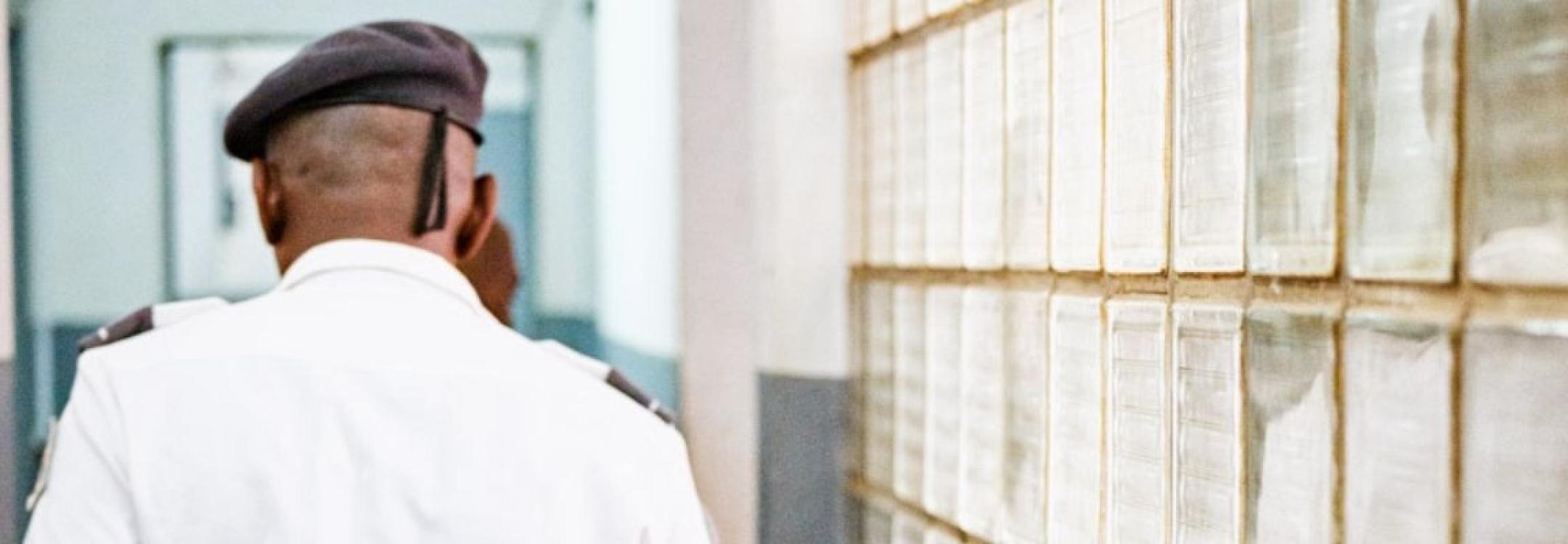
A new Model Law for Police in Africa has been adopted at the African Union level.
The Model Law is intended to guide African States on the legislative measures required to achieve democratic and rights-based police reform.
These efforts are complementary to those of other African Union mechanisms to articulate rights-based policing standards, particularly in the visible policing areas of arrest and detention and public order management.
Police reform has been pursued in one form or another across most African states. This includes as part of post-colonial independence transformation efforts, in the emergence from conflict, and in response to modern crises of justice and human rights. In a number of States, this work has centered on addressing deficits in the legislative framework for policing; though investment is usually more evident in changes to policy, training and uniforms, and the addition of ‘community policing’ as part of a new policing narrative.
In some cases, these reform efforts have meant profound changes to the way in which policing is defined in law, as it relates to the State’s obligations under international and regional human rights standards. They are also slowly reconfiguring the relationship between the police, the State and the people, within a framework of democratic policing governance. However, where efforts are piecemeal and not grounded in legislative reframing, or where implementation of the new legislative frameworks is weak, reform is not translating these aspirations into measurable changes in the way policing is controlled, directed or conducted. Accordingly, they are not resulting in significant improvement to the enjoyment of rights by those to whom policing services are rendered.
At the level of the African Union, the need to promote democratic police reform has been recognised as a critical issue at the foundation of promoting democratic governance, the rule of law and human rights. Over the past 10 years, the African Commission on Human and Peoples’ Rights has developed normative standards through the adoption and implementation of a range of legal instruments including in relation to arrest and police custody, public assemblies, the prohibition against torture and other ill-treatment, the use of force, countering terrorism, enforcement of minor and petty offences, and police accountability. The African Union Commission has recognised the importance of framing policing within a democratic and rights-based framework, within the broader implementation of security sector reform efforts. It has also encouraged the adoption of codes of conduct that prescribe the standards necessary to meet these aims.
Each of these regional standards identify the importance of ensuring that African States take legislative measures to give effect to these obligations, including during conflict and states of emergency. However, what was missing from these regional efforts was concrete guidance to African States on precisely how to create the enabling legislative framework to promote rights-based and accountable policing.
This presented an opportunity for the Pan African Parliament, with technical support from the African Policing Civilian Oversight Forum, to use its legislative mandate to establish a Model Law for Police in Africa. The Model Law was developed by the Parliament’s Committee on Justice and Human Rights to promote legislative reform of policing in States across the African Union, to consolidate and enhance the existing efforts of other African Union mechanisms, and to support security reform efforts at the sub-regional and national levels.
The Model Law translates the principles of rights-based and democratic policing into a legislative instrument that can be adapted for use at the national level, or used as a template against which national legislation can be reviewed or developed. Its content was informed by the principles of democratic policing, reflected in the political and legal commitments already made by States by virtue of their membership of the African Union and the United Nations, and through the application of international human rights law.
There are three key themes that underpin the Model Law: democratic and civilian control of police; the rule of law; and human rights compliant standards of policing. The Law includes inputs from a broad range of African policing experts and reflects a ‘best practice’ legislative model that can be applied across the various legal traditions and policing structures that are found on the continent. Indeed, the Committee recognised early in the process that a participatory and inclusive methodology would be vital to ensure its relevance to African policing governance, as well as to promote its visibility and use by stakeholders.
The success of the Model Law for Police in Africa in re-framing the relationship between the police, the State and the people will be measured by how well it is accepted and adopted by African States in their police reform efforts. The implementation of the Model Law is not within the mandate of the Pan African Parliament alone and all stakeholders are encouraged to use it as a resource. In countries where legislative reform has been made– whether wholesale or piecemeal – the Model Law can provide a useful template for assessing the extent to which these efforts have implemented existing obligations. For countries still operating under colonial-era legislation, or those for whom legislative reform has not been recent, the Model Law can be adopted and adapted to ensure that the legislative framework for policing provides the best start possible for the difficult work of ensuring that policing, in both law and practice, is democratic, rights-based and accountable.
More information, resources and technical assistance is available from the African Policing Civilian Oversight Forum.
Louise Edwards, Director of Research and Programmes, African Policing Civilian Oversight Forum